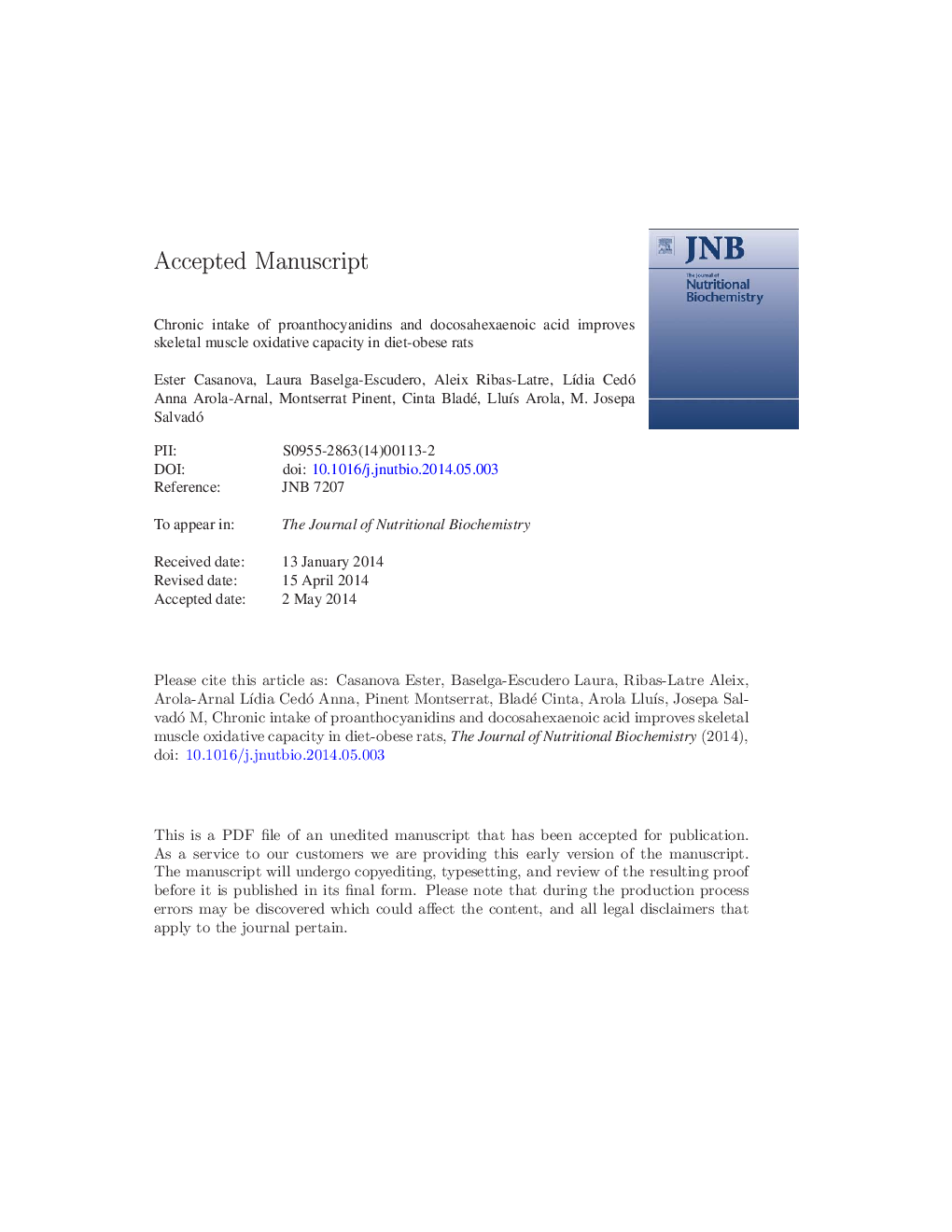| Article ID | Journal | Published Year | Pages | File Type |
|---|---|---|---|---|
| 8337098 | The Journal of Nutritional Biochemistry | 2014 | 36 Pages |
Abstract
Obesity has become a worldwide epidemic. The cafeteria diet (CD) induces obesity and oxidative-stress-associated insulin resistance. Polyunsaturated fatty acids and polyphenols are dietary compounds that are intensively studied as products that can reduce the health complications related to obesity. We evaluate the effects of 21 days of supplementation with grape seed proanthocyanidins extract (GSPE), docosahexaenoic-rich oil (DHA-OR) or both compounds (GSPE+DHA-OR) on skeletal muscle metabolism in diet-obese rats. The supplementation with different treatments did not reduce body weight, although all groups used more fat as fuel, particularly when both products were coadministered; muscle β-oxidation was activated, the mitochondrial functionality and oxidative capacity were higher, and fatty acid uptake gene expressions were up-regulated. In addition to these outcomes shared by all treatments, GSPE reduced insulin resistance and improved muscle status. Both treatments increased 5'-AMP-activated protein kinase (AMPK) phosphorylation, which was consistent with higher plasma adiponectin levels. Moreover, AMPK activation by DHA-OR was also correlated with an up-regulation of peroxisome proliferator-activated receptor alpha (Pparα). GSPE+DHA-OR, in addition to activating AMPK and enhancing fatty acid oxidation, increased the muscle gene expression of uncoupling protein 2 (Ucp2). In conclusion, GSPE+DHA-OR induced modifications that improved muscle status and could counterbalance the deleterious effects of obesity, and such modifications are mediated, at least in part, through the AMPK signaling pathway.
Keywords
AMPKGSPESTDFCCPOXPHOSTCAMnSODPUFAsCPTCOXtrifluorocarbonylcyanide phenylhydrazoneEPAPPARsβ-oxidationEicosapentaenoic aciddocosahexaenoic acidFatty acidPolyunsaturated fatty acidsDHAstandard dietCafeteria dietelectron transport chainRespiratory quotientCitrate synthaseSkeletal muscleOxidative phosphorylationObesityMitochondriaETcProanthocyanidinstricarboxylic acid cycleCreatine kinasePeroxisome proliferator-activated receptors
Related Topics
Life Sciences
Biochemistry, Genetics and Molecular Biology
Biochemistry
Authors
Ester Casanova, Laura Baselga-Escudero, Aleix Ribas-Latre, LÃdia Cedó, Anna Arola-Arnal, Montserrat Pinent, Cinta Bladé, LluÃs Arola, M. Josepa Salvadó,
